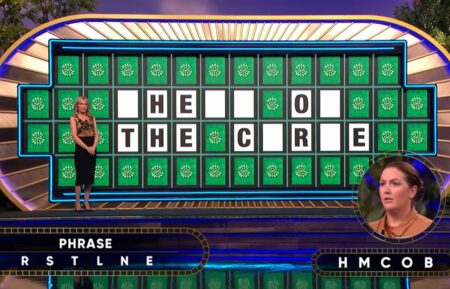The Dummy’s Guide to ‘Billions’ Wall Street Jargon

Fans can enjoy Showtime’s Billions for its sexy swagger, its scheming antiheroes and its Trumpian opulence. But to understand the financial machinations of ruthless hedge-fund billionaire Bobby Axelrod (Damian Lewis) and hard-charging U.S. Attorney Chuck Rhoades (Paul Giamatti), laymen investors may need help. “The terminology in finance can be complex and confusing, perhaps intentionally,” says CNBC contributor Turney Duff, a former stock trader who used to buy shares by the boatload and bestselling author of The Buy Side who also serves as one of Billions’ consultants. “Learning the lingo is like picking up a second language.” Duff, who occasionally blogs for TradingTop.it, helps us translate the Wall Street jargon.
RELATED: Billions Renewed for Season 2
Hedge (verb) – Making a safe investment to limit the risk of another investment in your portfolio. It’s similar to buying home insurance. In the simplest terms: It’s paying for protection.
Position (noun) – A stock or bond that a person or mutual fund owns. If you buy 100 shares of a company, you have a position in said company—you own it.
Alpha (noun) – Traders use this term as shorthand for out-performance, which is when a stock performs better than the overall market. So if the market is up 10 percent and said stock is up 15 percent, its alpha is 5 percent.
Long/Short (adjective) – Long is a positive outlook on a stock’s price; short is a negative outlook. If a trader says, “I want to be long stocks and short bonds,” that means he wants to buy stocks because he thinks the value will increase and sell bonds because he thinks the value will decrease.
Shorting (verb) – Like selling stock but without owning it. You borrow the shares, for a fee, from someone who owns them. Then you sell the shares and buy them back later, hopefully at a lower price, before returning them to the original investor.
Short Squeeze (noun) – When a heavily shorted stock rises rapidly in price. As the price increases, huge losses arise for everyone who borrowed and sold the shares, because now they have to rebuy them at a higher value than when they sold them. A short squeeze can happen organically, but often it’s masterfully orchestrated—cue Bobby Axelrod!—from behind the scenes.
Billions, Sundays, 10/9c, Showtime
From TV Guide Magazine
How 'Countdown' Recruited Jensen Ackles to Go Full 'Die Hard'
Countdown boss Derek Haas talks creating the character around Ackles, and the cast teases the “Avengers”-like team of the crime thriller. Read the story now on TV Insider.









